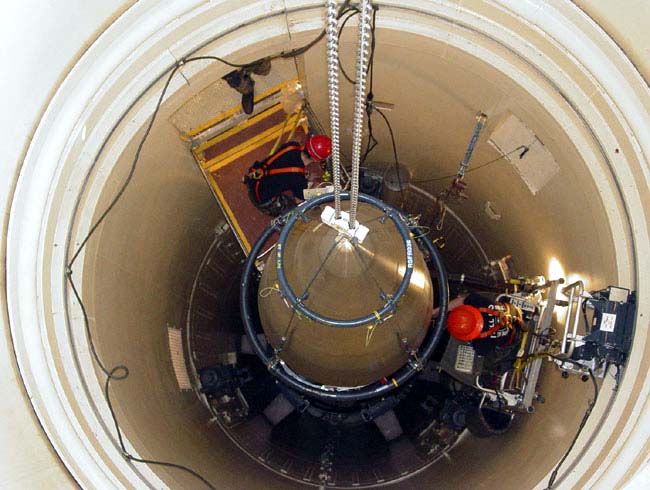Come Dec. 6, the day after the START I agreement expires, the US will no longer have verification measures at its disposal to monitor Russian strategic nuclear forces, said Sen. Jon Kyl (R-Ariz.), co-chair of the Senate’s National Security Working Group, in a floor speech earlier this month. Yet, warned Kyl, “no one appears to know what will come next” between START I’s expiration and the potential entry into force of a follow-on arms-reduction treaty with Russia. Kyl believes “this borders on malpractice,” given that Administration officials understood this issue going into negotiations with Russia. It took the Senate about 14 months to ratify START I so the pending period without verification measures may be lengthy, he suggested. (Kyl has co-sponsored with Sen. Richard Lugar (R-Ind.) and Sen. John Kerry (D-Mass.) a resolution (committee report) to assist the Administration in forging a “bridging arrangement” to extend the START I protocols.)
Dec. 6, the day after the START I agreement expires, the US will no longer have verification measures at its disposal to monitor Russian strategic nuclear forces, said Sen. Jon Kyl (R-Ariz.), co-chair of the Senate’s National Security Working Group, in a floor speech earlier this month. Yet, warned Kyl, “no one appears to know what will come next” between START I’s expiration and the potential entry into force of a follow-on arms-reduction treaty with Russia. Kyl believes “this borders on malpractice,” given that Administration officials understood this issue going into negotiations with Russia. It took the Senate about 14 months to ratify START I so the pending period without verification measures may be lengthy, he suggested. (Kyl has co-sponsored with Sen. Richard Lugar (R-Ind.) and Sen. John Kerry (D-Mass.) a resolution (committee report) to assist the Administration in forging a “bridging arrangement” to extend the START I protocols.)
The U.S. military is sending more fighter jets to the Middle East to step up its war with Iran, adding to what is already the largest buildup of airpower in the region since the 2003 invasion of Iraq. For now, the operation shows little sign of coming to a quick…